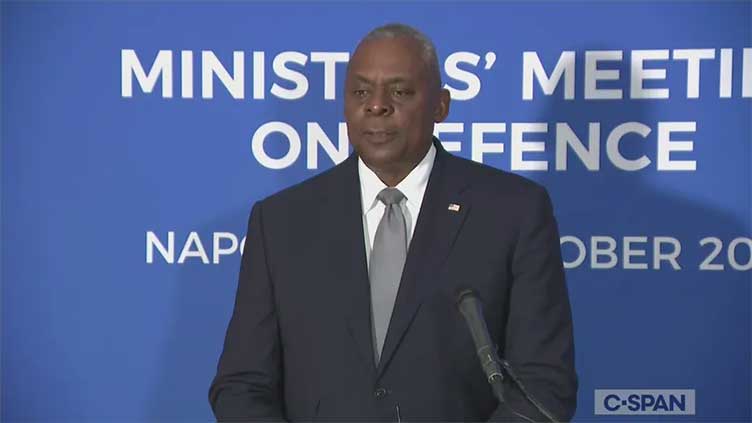Pentagon chief calls on Israel to scale back Beirut strikes

World
Austin's comments came hours after Israel carried out heavy strikes on several locations in Beirut
NAPLES (Reuters) – The United States would like to see Israel scale back some of its strikes in and around the Lebanese capital of Beirut, US Defense Secretary Lloyd Austin said on Saturday, adding the number of civilian casualties was "far too high."
Austin's comments came hours after Israel carried out heavy strikes on several locations in the city's southern suburbs, leaving thick plumes of smoke wafting over the city horizon throughout the evening. Israel said it struck arms facilities belonging to Lebanese armed group Hezbollah.
Tens of thousands of people have fled the southern suburbs - once a densely populated zone that also housed Hezbollah offices and underground installations - since Israel began regular strikes there about three weeks ago.
"We'd like to see Israel scale back on some of the strikes it's taking, especially in and around Beirut," Austin told reporters at a G7 defense gathering in the Italian city of Naples.
"And we'd like to see things transition to some sort of negotiation that will allow civilians on both sides of the border to return to their homes."
Hezbollah has been trading fire with Israel since the war between Israel and Palestinian group Hamas began in Gaza last October.
But nearly three weeks ago, Israel launched a ground assault inside Lebanon in an attempt to stabilize the border region for its citizens who had fled the fighting.
Austin said he had asked his Israeli counterpart, Yoav Gallant, about reported Israeli attacks on positions of the UN peacekeeping mission in Lebanon.
The UN mission, known as UNIFIL, said on Friday it had come under several "deliberate" attacks by Israeli forces in recent days and efforts to help civilians in villages in the war zone were being hampered by Israeli shelling.
"He (Gallant) assured me there's no intent of him or his forces to target UNIFIL forces. Again, I continue to emphasize how important it is that those forces don't come under attack," Austin said.
The United States, Israel's strongest ally, has been urging Israel to do more to safeguard civilians in Gaza and in Lebanon.
But a confidential letter from Austin and Secretary of State Antony Blinken to Israeli officials last week demanded concrete measures to address the worsening humanitarian situation in Gaza, or face potential restrictions on US military aid.
Austin declined to discuss the letter but noted that the United States had seen "a sharp decline in the amount of aid going in."
"So we need to bend that curve in the other direction," Austin said.
Asked if anything had changed in recent days, Austin said he had "seen things being done to get more aid in."
Hamas fighters from Gaza killed some 1,200 people and took 250 hostage in an attack last October that triggered the war, according to Israeli tallies.
Israel's military response has left more than 42,500 people dead, Palestinian officials say, and made most of Gaza's 2.3 million people homeless. It has also caused widespread hunger and destroyed hospitals and schools.


